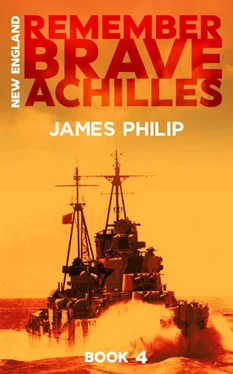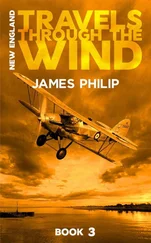Even the Crown Prince had echoed his misgivings.
Unfortunately, nobody had done anything about it.
And he, therefore, had been the man on the spot when Gravina’s Staff had submitted the plans for Operación Cruzada Uno – Operation Crusade One – had dropped in his lap.
Von Reuter had viewed the whole enterprise as some kind of bizarre, rather eccentric staff exercise; which had been what the reaction of the Oberkommando der Kaiserliche Marine (OKM) in Berlin had been at first, too. Berlin concurred with his assessment that even if Operación Cruzada Uno was no more than an attempt to document a scenario, or a proposal for future operation planning, it had so many obvious flaws and inconsistencies that it was going to need an awful lot of ‘professional’ staff work done on it, before anybody mentioned it to the Kaiser. For example, any notion of co-ordinating large-scale fleet manoeuvres with the Dominicans and the Cubans, or their other allies without first establishing common standard operating procedures and communications protocols, or doing something to address the inherent incompatibility of their respective weapons systems, and the steaming capabilities of the vessels optimistically assigned to Operación Cruzada Uno, was plainly nonsensical. Also, nobody in Berlin could see where the triple Alliance was going to find sufficient seaworthy or battleworthy, naval assets to mount the four concurrent, widely separated strikes, each many hundreds of miles from the next, in the given operational timescale of just thirty days.
And where was the ‘air’ element to support these operations?
Moreover, nobody in Berlin had given anybody in Havana or Mexico City the all clear to deploy any, let alone all of the submersible assets jointly designed and constructed over the last decade. Yet without those submarines guarding their flanks the Triple Alliance’s fleets, even supported by the five modern cruisers of von Reuter’s squadron would be at the mercy of roaming British surface patrols…
This was why von Reuter had demanded to be copied in on all current Triple Alliance planning documentation. Operación Cruzada Uno was a naval suicide note without a meaningful air component, and or, every single submarine in the navies of Nuevo Granada and Cuba. Not that even this would make the insane scheme remotely viable, politically or militarily. Each ship sunk or damaged by a torpedo fired from a ‘Spanish’ submarine would run down the clock on a general war…
And that was unthinkable!
While he waited for OKM’s veto to scupper the lunatic plans of his Spanish allies, Von Reuter had had no option but to rely on delaying tactics, seizing upon the arrival of HMS Achilles in theatre to unilaterally cancel, for ‘operational reasons’ the Breitenfeld and the Lutzen ’s ‘planned’ strike on Bermuda.
Gravina had violently resisted this at first.
‘The Achilles is a very capable weapons platform commanded by the most experienced captain in the Royal Navy,’ von Reuter had argued, ‘quite a match for any one of my three smaller cruisers, or for any other single vessel the Alliance can field against her!’
Gravina had wanted him to leave the Karlsruhe and the flagship’s destroyer screen to guard the Windward Passage and if necessary, to intercept the Achilles while his two heavy cruisers raced north to bombard Bermuda.
Insanity did scant justice to the plan.
‘If your big ships encounter her on your northward strike so much the better,’ Gravina had declared.
Countering this, von Reuter had taken the Mexican to the Breitenfeld ’s chart room, drawn his ship’s circles of ELDAR coverage within the confines of the Windward Passage – albeit conservatively – to illustrate how easily Achilles might evade his ships during her southern transit.
‘Then the British would have two cruisers at Jamaica,” he had observed. “If that happens, nothing short of the whole Vera Cruz Squadron would be required to dislodge them.’
Thus, von Reuter had split his ships between covering Jamaica, the southern approaches to the Windward Passage, and Guantanamo Bay, where, for some weeks he had hoped to dry dock the Lutzen to address a problematic bearing on her starboard shaft.
Neither he, nor his captains, had seriously believed that they would be engaged on war fighting missions against the British colony of Jamaica, or Royal Navy warships at sea until about thirty-six hours ago. Even then, nobody had really believed what was happening until the first shots were fired.
In the distance he heard the pumps thumping.
Both the Breitenfeld and the Lutzen had had hull welds cracked by near misses, the flagship was drizzling a small leak of bunker fuel from somewhere aft beneath her belt armour.
Well, Erwin von Reuter thought silently, now at least, he was going to be able to tell the hotheads back home exactly what a war at sea with the British looked like!
It was not a pretty sight.
HMS Achilles was one, relatively small, lightly armoured old-fashioned trade route cruiser and yet she had given his two big, heavily protected ‘modern’ cruisers a very rough handling and sunk one of his destroyers, inflicting some two hundred casualties. Not to mention writing yet another glorious page in the Royal Navy’s illustrious annals.
As to whether or not he was ever going to get the chance to tell those idiots in Berlin what a war with the British might look like in person, well, that was now something of a moot point.
Neither he, nor his ships, were going back to Germany any time soon, if ever. One did not have to be any kind of mystic or clairvoyant to realise that the Vera Cruz Squadron had stamped on a giant wasp nest and that it was only a matter of time before the inevitable reckoning!
Thursday 6th April
Puente de Congosto, Castile and León, Spain
It might have been delayed shock, or perhaps, just simple emotional and physical exhaustion but the two women had slept, fitfully, until the light of dawn began to explore the sky and a cold flecking rain began to fall. The boy, Pedro, whom they had rescued from yesterday’s ambush at El Barco de Ávila , whom they now guessed to be three to four years old, had nestled between them beneath their single, damp-smelling blanket.
“We can’t stay here!”
Melody Danson blinked myopically up into Albert Stanton’s bruised and scarred face. The Manhattan Globe’s star reporter’s steel-rimmed spectacles, still rested at a slightly odd angle on his nose, broken, or certainly re-aligned in his recent insanely courageous parachute jump.
“What?” She muttered, still half-asleep and seemingly, aching from head to foot, not to mention suddenly chilled to the bone. Next to her Henrietta De L’Isle began to stir as the two women started, unconsciously to untangle their limbs, one from the other.
“We can’t stay here,” the man pointed out. “We’re virtually out in the open. Anybody could come along and find us!”
Melody was aware of the rushing of the river now.
Last night the stream had bubbled and gurgled, gently carried their two flat-bottomed punts along. Something had changed overnight.
The rain began to fall harder, persistently.
She looked around.
Everything came back in a flash.
The two teenage boys, Jesus and Felipe, who had steered the boats downstream well into the night had insisted they haul the skiffs ashore above the town. In fact, they had refused, point blank, to go any further. They had ‘people’ who depended upon them back ‘up river’. And besides, within a few hundred yards the waters narrowed to a rocky, twisting channel where the river passed through the nearby town, and beyond the ‘dangerous reach’ there was a high weir, and below that lay several more impassable rapids.
Читать дальше












